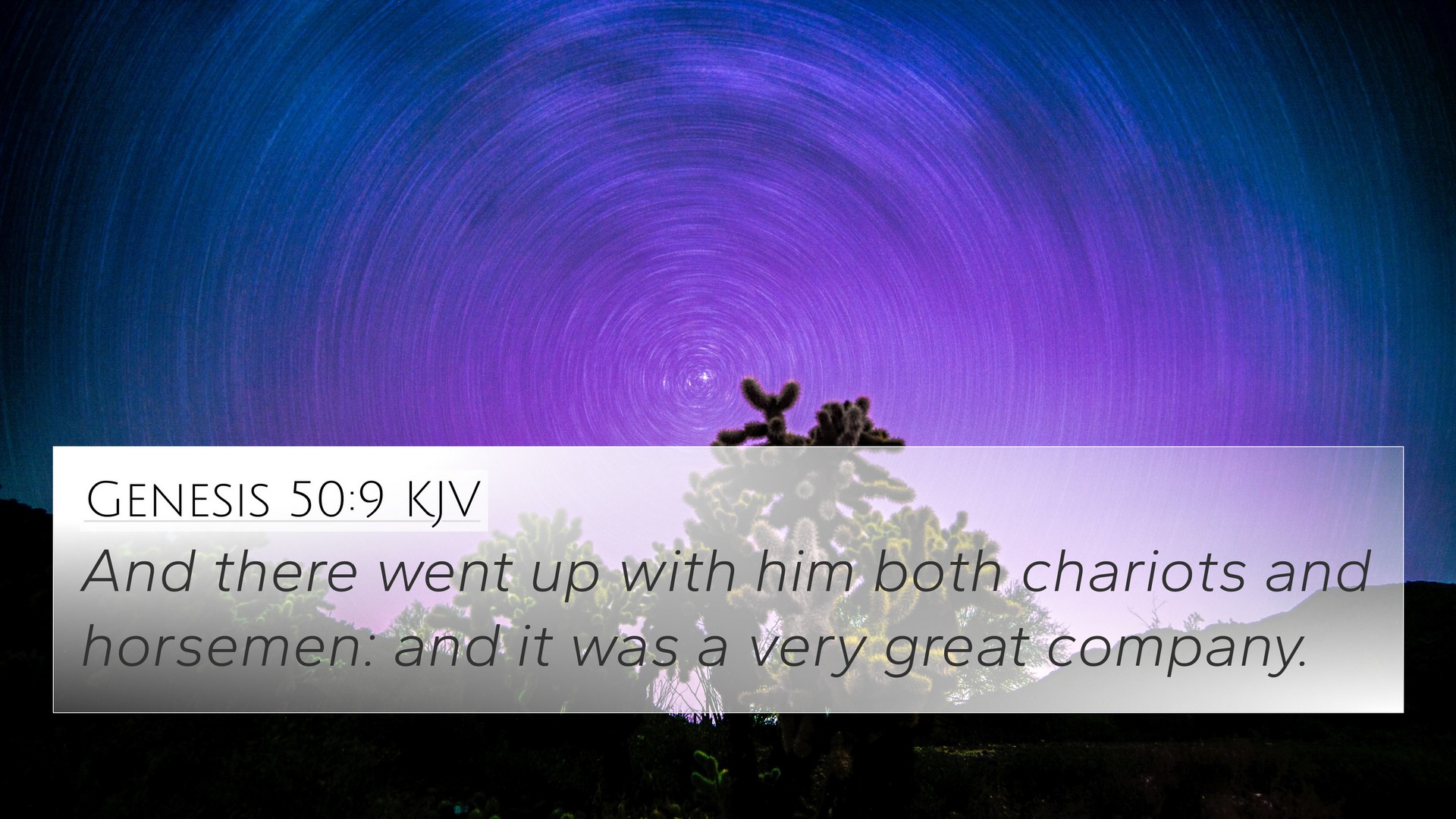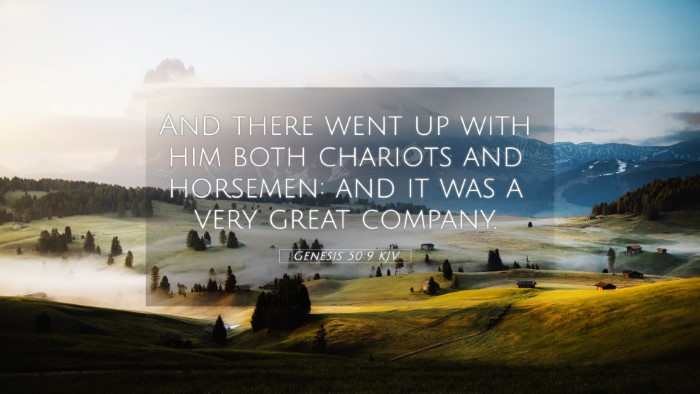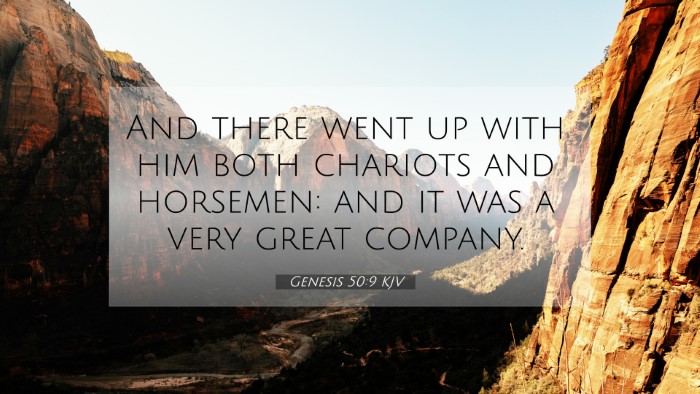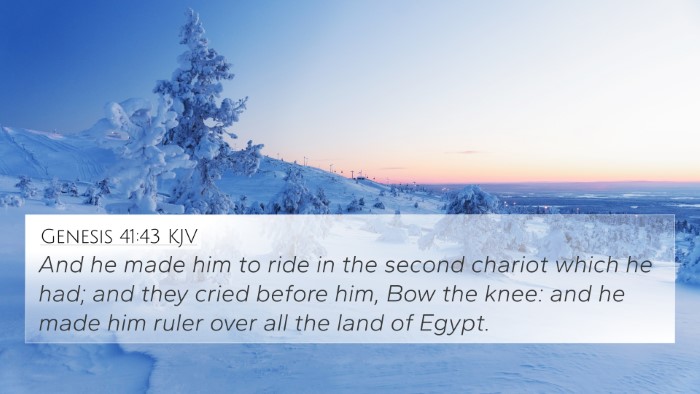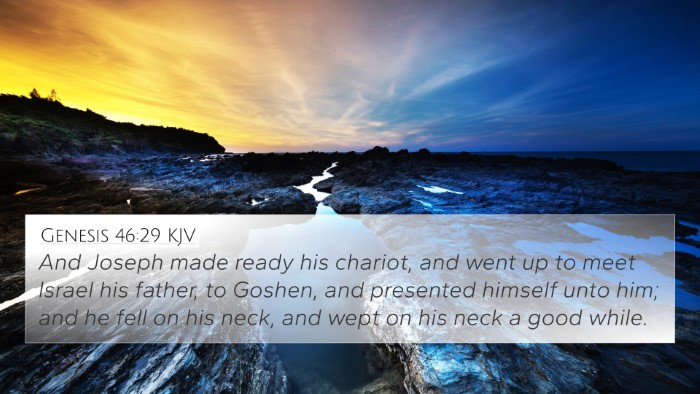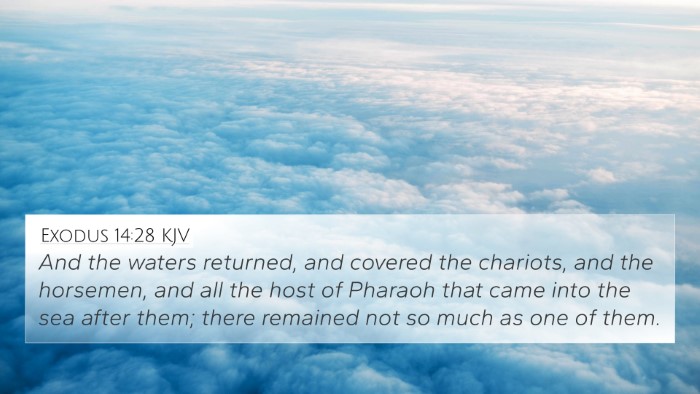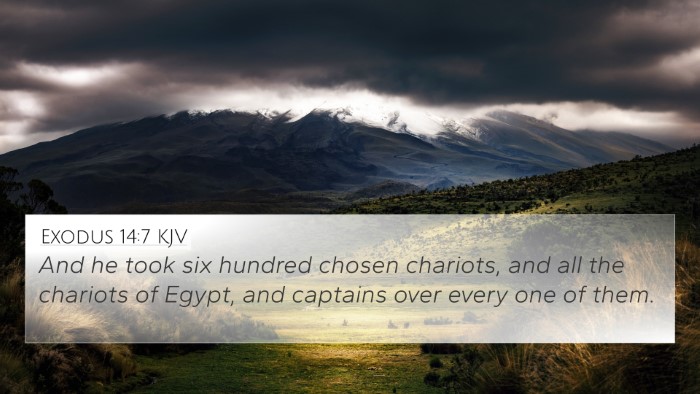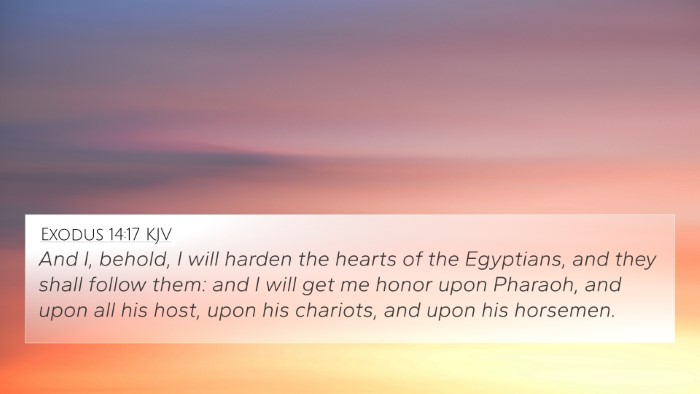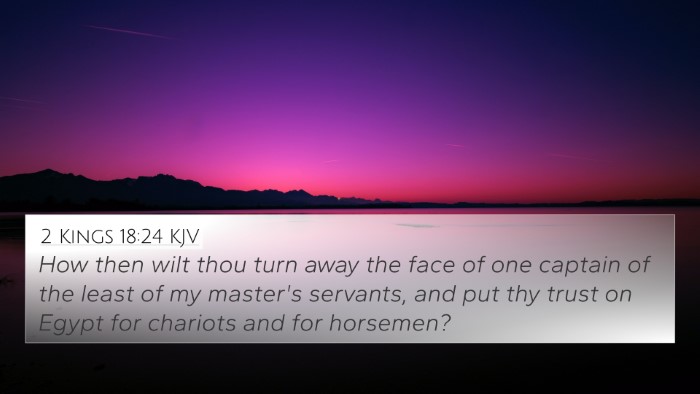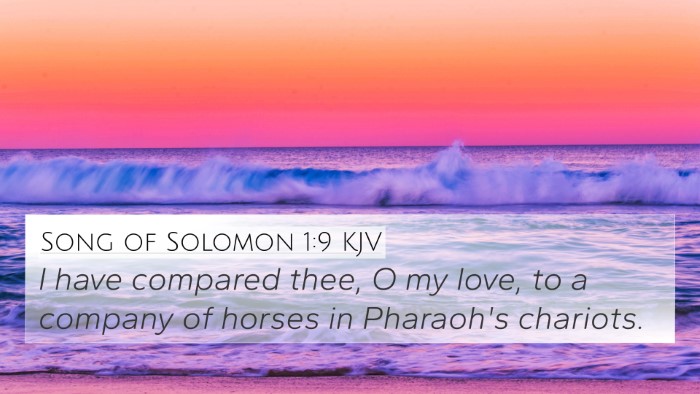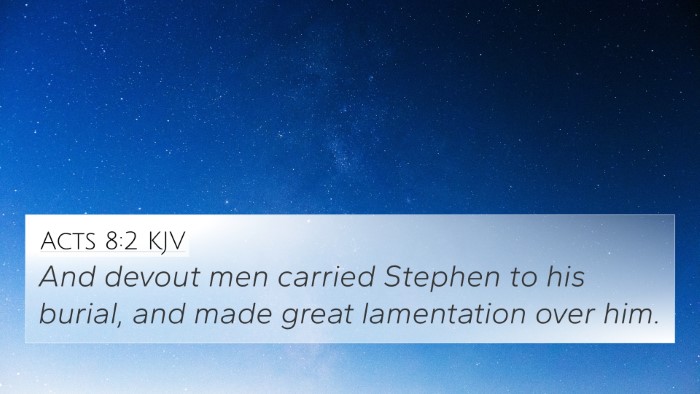Understanding Genesis 50:9
Genesis 50:9 states, "And there went up with him both chariots and horsemen: and it was a very great company." This verse captures a moment of deep significance as Joseph prepares to bury his father, Jacob, in Canaan, highlighting both the honor of the occasion and the great respect shown to Jacob by his family and the Egyptians.
Summary of Biblical Context
This moment occurs at the culmination of Joseph's life, highlighting how God's providence and favor were evident throughout his time in Egypt, ultimately culminating in the reunion with his long-lost family. The verse illustrates the respect the Egyptians had for Jacob, recognizing him as a patriarch despite the cultural differences.
Insights from Public Domain Commentaries
Matthew Henry's Commentary
Matthew Henry provides insight into the significance of this verse by noting that Jacob’s death elicited a national response, where the Egyptians, who had been blessed through Joseph, participated in honoring Jacob. This gesture reflects the loyalty Joseph had earned and showcases the mighty hand of God at work in his life. It also symbolizes the transition and assurance of God’s promises that would follow in the generations to come.
Albert Barnes' Notes on the Bible
Albert Barnes emphasizes the grandeur of the procession. The mention of chariots and horsemen signifies wealth and power, showcasing the importance of the funeral. For Barnes, this embodies the idea of dignity in farewell rituals, setting precedent for how Israel was to be honored in foreign lands.
Adam Clarke's Commentary
Adam Clarke adds clarity by emphasizing that this was a great assembly, reflecting the high regard the Egyptians held for Jacob and the influence that Joseph had in Egyptian society. Clarke argues that the large number of participants in the procession signifies communal mourning and respect, stressing the importance of acknowledging one’s roots and heritage.
Cross-References to Genesis 50:9
- Exodus 13:19: "And Moses took the bones of Joseph with him..." - illustrating the longstanding commitment to Joseph's wishes regarding burial.
- Genesis 46:4: "I will go down with you into Egypt; and I will also surely bring you up again..." - God's promise of return indicating the significance of Canaan.
- Hebrews 11:21: "By faith Jacob, when he was a dying, blessed both the sons of Joseph..." - reflecting on Jacob's legacy.
- Genesis 48:1-2: "And it came to pass after these things, that one told Joseph..." - revealing the relationship between Jacob and Joseph's family.
- Genesis 49:29-32: Jacob’s command to be buried in Canaan, establishing his importance to the covenant.
- John 11:35: "Jesus wept." - underscoring the shared experience of sorrow and loss.
- Psalm 116:15: "Precious in the sight of the Lord is the death of his saints." - highlighting the honor given to those who have passed.
Links Between Biblical Themes
This verse serves as a connective thread within the broader biblical narrative, linking themes of mourning, respect for elders, and the fulfillment of God’s promises. The chariots and horsemen symbolize not only the physical journey but also the spiritual voyage that Israel would undertake as they transition from Egypt back to Canaan.
Thematic Connections
Themes of family loyalty, the respect for heritage, and divine providence echo throughout scriptures, reinforcing how God orchestrates lives and legacies. The mourning for Jacob connects seamlessly to how later generations in Israel would regard their ancestors and the promises made to them.
Comparative Analysis with Other Scriptures
Connecting Old and New Testaments: The respect and mourning for Jacob in Genesis mirrors the lamenting over Jesus in the New Testament, demonstrating a continuity of human sentiment towards significant leaders and figures who guide the faithful.
Findings in Pauline Epistles: Paul often draws on the history of Israel to encourage a sense of continuity and expectation in the Church, reflecting how past events shape present faith.
Conclusion
Genesis 50:9, while a simple account of a funeral procession, carries with it substantial weight in understanding God’s narrative with His people. The commentary insights combined with the cross-references illustrate the deep connections within scripture that reflect on heritage, mourning, and the assurance of God's promises.
For further exploration, readers are encouraged to utilize tools for Bible cross-referencing such as a Bible concordance to uncover thematic connections and deepen their understanding of this significant passage.
